Overcoming Challenges Through Continuous Learning
Aruba, July 18, 2019 – Last week, I went to a fantastically informative event, hosted by the Churchill Club, Melbourne. It was about “Developing the Tech Talent of the Future”. New technologies and shifting customer expectations are shifting the business game. In the same way, new platforms, products and services, business models and other emerging creative surprises are, disrupting the learning game. To promote this “sold out” event, The Churchill Cub shared “keeping up with our changing world of work requires access to continuous learning and micro-credentials to attain the bite-sized chunks of knowledge we need. It’s about access to the right content, at the right quantity and quality of choice, in the right time and context and, at the right price”.
How can organisations, academic institutions and especially schools ensure that people have the skills for today, to deliver these types of digital transformation? To also develop the skills required to surmount future challenges, so what then, is the role of continuous learning?
The world has turned upside down
According to Steve Blank, the 20th century was the golden age for corporations. Today, companies face five challenges they never had to deal with previously:
- Challenge One – As companies are discovering every day, the web has changed everything.
- Challenge Two – Large companies are dealing with start-up’s that are funded with unimaginable capital.
- Challenge Three – Today, investors willingly fund start-ups to do anything on day one. Anything. Including break the law.
- Challenge Four – In a start-up, 100% of the company is focused on innovation and entrepreneurship. In a large corporation, 99% of the company is focused on the execution of the current business model by building repeatable processes and procedures.
- Challenge Five – In a start-up, if you win, it’s a payout of billions of dollars. In a large company, for the individual, there is no such payout.
A mismatch between supply and demand
So how do we redesign an approach to learning to continuously uncover and cultivate the emerging skills required to confront these challenges?
Where, The Churchill Club stated that already “our largest tech firms report that they are struggling to find the right talent and have resorted to recruiting overseas, or investing in internal boot-camps and academy training for those they do hire locally”.
One of the key points raised at the Churchill Club event, with tech industries represented by realestate.com, and carsales.com, is the growing mismatch between the supply and demand of skilled talent. Especially in developing the capability to design and deliver digital transformations.
If technology is now at the core of everything we do now and will be more so in the future, how can we ensure that talent will be open to continuous learning? How can we resource them to develop the new and emerging skillsets, innovations and start-up business models to survive and thrive in a VUCA world?
A new model for education
Interestingly, the panel was hosted by Kee Wong, Managing Director, e-Centric Innovations. Who presented a new model of education, launching soon in Victoria. Aimed at “equipping our talented workforce with the skills required by our domestic tech industry, and more broadly to support our aspirations as a global tech city”.
Based on a simple eco-system concept, it links universities (flexible academic learning), with tech companies (onsite practical application) and content-rich, online learning platforms (data and knowledge). Designed to speedily close gaps between “theory” and “practice” by cultivating commercial acumen, via onsite real-world experiences and open the “glass doors” between experience and performance, and create the space for continuous learning.
Read more here.
Scroll To TopEvents
Safe the date for the Annual Business Event 2025


